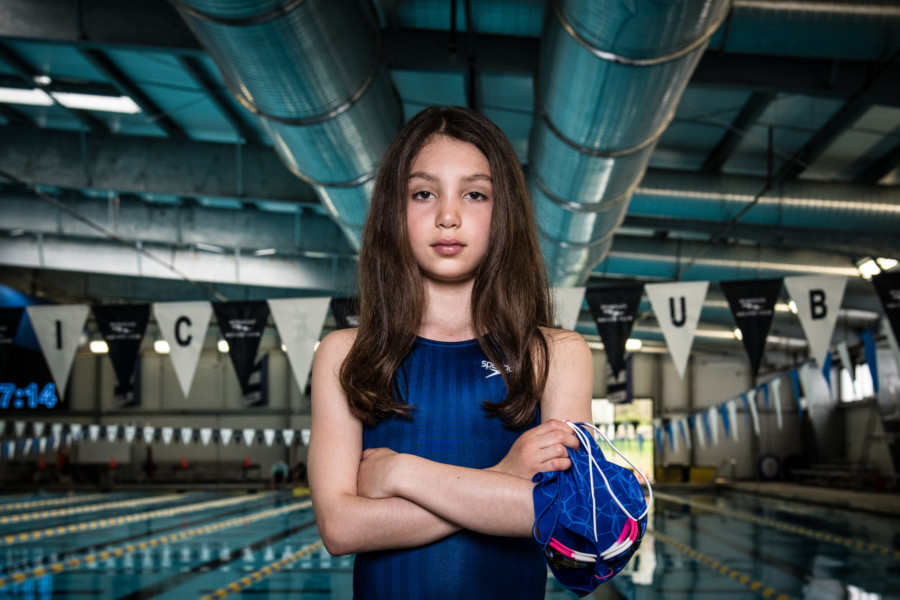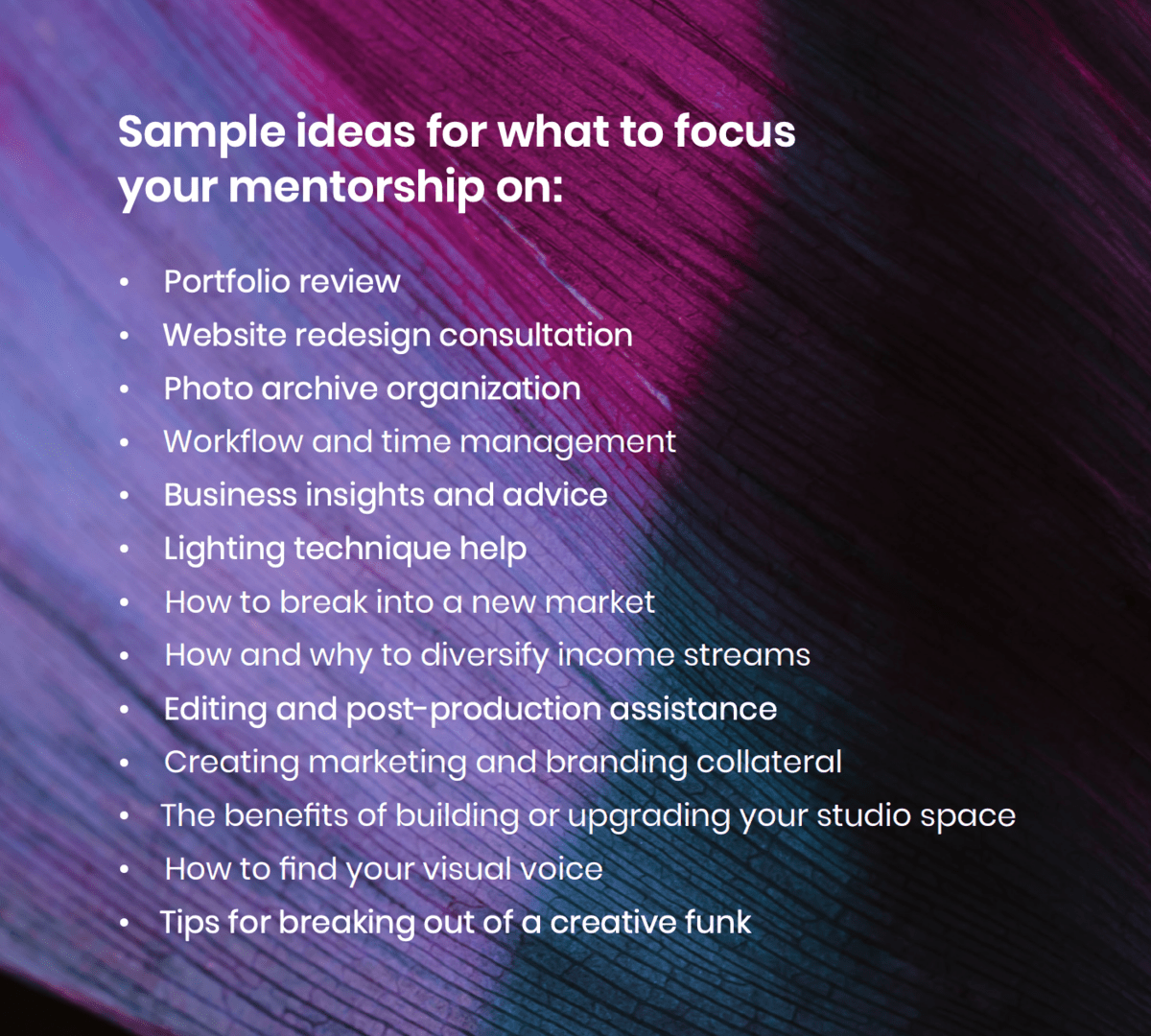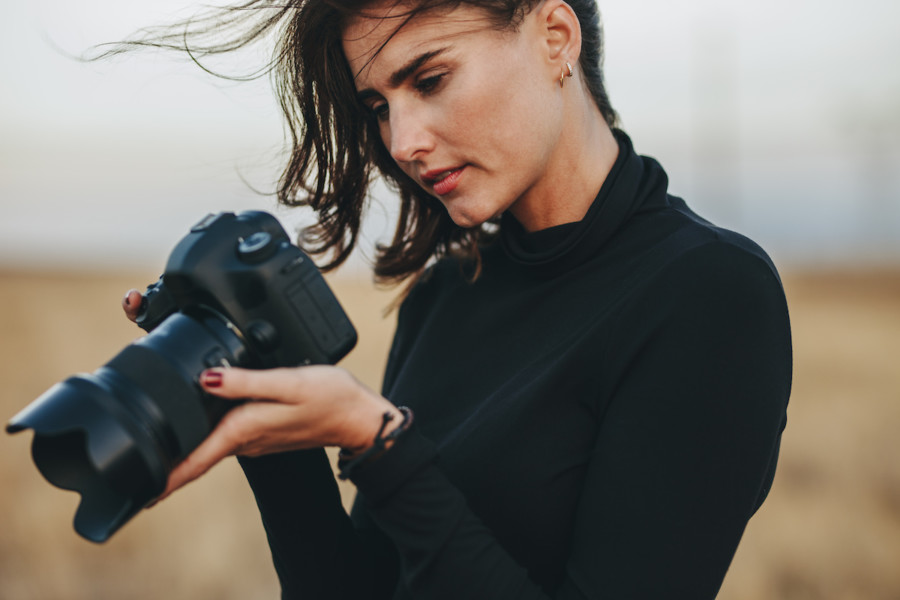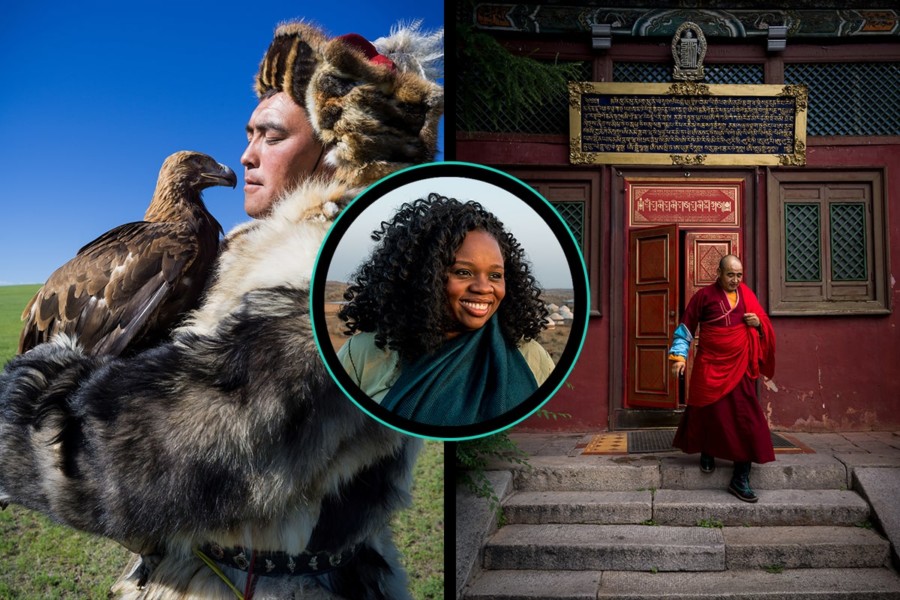Share
What Photography Mentorship Can Offer You
Mentorships have been around for a very long time, regardless of profession or artistic preference. Socrates mentored Plato. Then Plato mentored Ar...

Mentorships have been around for a very long time, regardless of profession or artistic preference. Socrates mentored Plato. Then Plato mentored Aristotle. Jump ahead and we’ve got Oprah Winfrey, who was mentored by Maya Angelou. Steve Jobs mentored Mark Zuckerberg.
Now, we’re not saying you have to be the next Oprah or invent Facebook, but instead want to encourage every photographer to consider the value of mentorship. Collaborative partnership provides confidence, opportunities to learn new skills and allows both parties to gain fresh perspectives.
Below, we’re unpacking how mentorship can help you progress your career and hone your photo skills. Whether you’re someone who wants a mentor or you yourself have the desire to help another photographer progress their skills and career, this one’s for you.
Cover photo by Rhea Nall.
What mentorship can offer you
At its most basic, mentorship is a source of reassurance. Reassurance that your creative brain brings value to the world. Reassurance that you’re producing something really special with your latest deeply personal project. Reassurance that, even if your work needs to be tweaked or edited differently, the work you do matters. And more than anything, reassurance that you matter.
Lockdown was really hard. I was questioning whether I had a point of view. I didn’t know what I wanted to say anymore. But being a mentor and rediscovering that I do have something to say truly nourished me. Mentorship helps create this energy within you.
Chris Parkes, documentary photographer and mentor
Part of being an artist means getting stuck in your own head. Imposter syndrome is real! A one-on-one mentorship relationship is a great avenue to consider if you’re feeling a little lost artistically or just need a confidence boost. Being around like-minded artists has a tendency to inspire your own art.
We want to be clear: established photographers, too, need that recognition and validation that their journeys matter. Mentors who offer their professional knowledge and portfolio reviews can get their own reassurance that their distinctive skills are useful and provide immense value. Helping someone has a profound effect on your own self-worth and has the potential to boost creativity and inspire new work of your own.
“Competition may drive you but community will build you”
The above quote comes from Todd Owyoung, a music photographer, Nikon Ambassador and creator of the popular photo blog “I Shoot Shows”.
In an industry where so many of us are in direct competition, it’s hard to step back and remember that we’re all in this together. Yes, when you get booked for a job that means other photographers were rejected. That’s certainly a win that should be celebrated. But if you take several steps back, we’re all working to share important stories and offer glimpses of powerful emotion without saying a word.
Todd writes, “It can be essential to develop as an individual for any type of creative, but especially as a photographer. This independent space gives you the freedom to explore and develop one’s own unique style — an essential element of any creative’s journey.
That said, it’s impossible to truly exist in a vacuum. We are constantly aware of others and the work they are doing, now more than ever in this age of social media. This reality is a blessing of inspiration and opportunities to learn. And if you want it, an environment of unyielding competition.”
He continues, “Community provides a platform for sharing work, receiving feedback and nearly as importantly, giving feedback. I feel that giving critiques on work is one of the strongest and fastest ways to learn. Giving critiques — critically analyzing how and why a photo may be successful or unsuccessful, what works and what doesn’t — can help you understand the fundamentals of photography that can be just as important as making images.”
Learning in the safe, supportive setting of a community gives you not only a sense of belonging, a drive to learn alongside your peers and a push to take risks, but it also gives you access to all the wealth of knowledge in that community. This last point is at the heart of why fostering community is something that benefits everyone involved.
Todd Owyoung, music photographer and Nikon Ambassador
In recent years it’s become clear that gatekeeping is out. Knowledge sharing is in. Transparency is in. Photo databases and collectives are booming, getting previously overlooked and unknown talented photographers big jobs and professional success.
When we elevate the entire industry from the bottom up, everyone benefits. Mentorship is one of the best ways to be a part of that movement and progress.
Be deliberate. Stay focused.
So now that you know mentorship can help, it’s important to distill what you can help with and what knowledge you might be seeking.
Trying to do everything all at once generally doesn’t work. It’s important to set explicit goals.
If both mentee and mentor feel confident with their ability to pitch to editors, leave that out. No matter where you choose to put your efforts, know that focusing on a few specific things is almost certainly going to get you the most out of a mentorship.
Below are a few ideas for what you might want to focus on. Choose between 3-5 and start there.

Equally as important is setting expectations around how the relationship will work. Agree on your preferred form of communication. Set boundaries around what will and won’t be discussed throughout the mentorship. How often can you realistically meet? What seems feasible for everyone’s schedule?
Actually write down the goals, rules of the road and make a plan for how both mentor and mentee can work together to achieve them.
To make this work, you’re going to have to get vulnerable
Mentorship is a bit of a trust exercise. Mentors need to encourage their mentees to take risks and go to vulnerable places, all while remaining respectful to the mentee’s specific needs and goals. In those scenarios, mentors must lead by example. Be open and emotive; it’ll build trust.
Admitting to rejection, defeat and mistakes is important for us all to do, no matter where we are in our careers. Mentors owning where they took a wrong turn and providing real examples is a great gift, for both your mentee and the greater photo community.
Tara Pixley, photographer, media scholar and founding member of The Authority Collective, was kind enough to share a story outlining the importance of communication when you’re booked for an assignment. She’d recently been approached by a major publication to do a portrait for them, but because she was coming back from a trip to New York and planning a few other things in her life, she admitted she was in a bit of a rush when she was initially in contact with the photo editor. “I had neglected to ask where the portrait was. I thought ‘Well they assigned it to me. I’m in LA so it’s in LA somewhere.’ But it actually ended up becoming a very complicated thing for me,” she explained.
Turns out, the shoot would be taking place outside of LA.
“I think that’s a great example of the importance of communication with editors. I hadn’t asked those questions and as soon as I realized that it was going to be a six or seven hour round trip, I knew that would be more of a day rate. So I reached out to the photo editor and explained the situation. They came back saying they could offer me a half day rate for travel time and mileage—everyone should always offer you mileage—and also $200 toward a hotel stay,” she says.
If I hadn’t done that, I probably wouldn’t have gotten that extra four to five hundred dollars.
Tara Pixley, visual journalist
Sharing triumphs and mistakes with a mentee chips away at the mystique of the photo industry. It takes away the perception that things just always fall into place for successful photographers. We are all human. We all make mistakes and every photographer gets rejected (and that includes the ones with established careers). It’s a universal experience and there is great power in mentors candidly sharing those experiences with emerging photographers.
Final thoughts
When it comes to making mentorship work for you—this may be the hardest one of all—do your best to set your pride aside.
Jean Fruth, a renowned sports photographer, recalled that early on, “I still had questions about my camera settings. We’ve all been there. You’re embarrassed to ask but if you don’t ask, you’re never going to find out what their settings are and why they’re doing it that way… Sure, you can learn that in school but more than anything, you learn on the job.”
Be curious to see what fellow photographers know. Mentors, ask your mentees what they think of your Instagram. Mentees, ask about a pro’s lighting set up. If you don’t ask, you’ll never know.
Photography can be isolating and lonely at times. Let mentorship help.
If you’re interested in learning more about the value of photography mentorship, download our latest free guide, Photography Mentorship: Why You Need it and Why it Helps Everyone.


